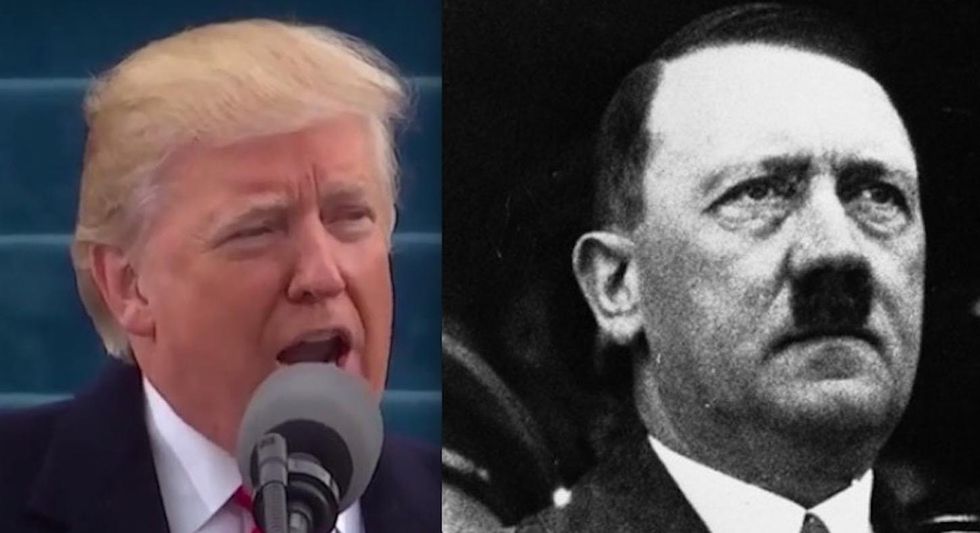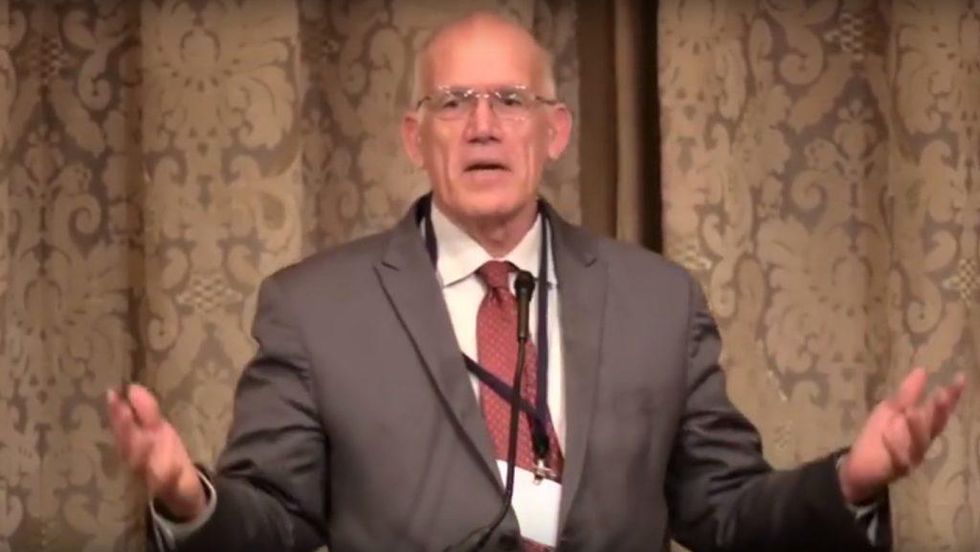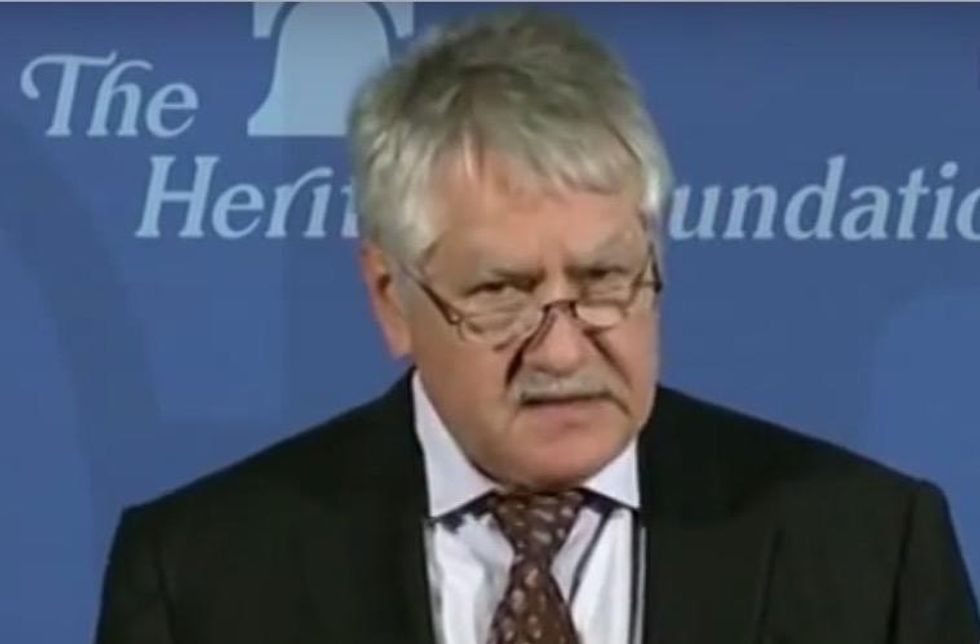
From left: President Donald Trump (Image source: YouTube screen cap), Adolf Hitler (AP Photo)

The comparisons between Nazi dictator Adolf Hitler and Republican President Donald Trump — which began after the commander in chief first announced his run for office in 2015 — show no signs of lessening now that he's in office.
To wit, MSNBC's Chris Matthews said that when Trump intoned "America first" during his inauguration speech Friday, it had a "Hitlerian background to it."

And an angry Ashley Judd delivered a poem of sorts the next day at the Women's March that reached similar conclusions: "I didn't know devils could be resurrected, but I feel Hitler in these streets! A mustache traded for a toupee! Nazis renamed the Cabinet! Electro-conversion therapy, the new gas chamber shaming the gay out of America, turning rainbows into suicide notes!"
But despite those and other continuing comparisons, experts say they're unfounded.
Victor Davis Hanson — a highly regarded historian and senior fellow at the Hoover Institution — told TheBlaze that the "Trump-as-Hitler rhetoric is just a reawakening of the Bush-as-Hitler tropes 10 years [ago] and before that the Reagan-as-Hitler smears."
Hanson then described some of the vast differences he sees between Trump and Hitler:
Hitler's central ethos was hatred and scapegoating of the Jews, whose logical trajectory was the Holocaust. Trump is in contrast a strong Israel supporter; his daughter is a Jewish convert, three of his grandchildren [are] Jewish. Trump went to the inner city and sought to reach out to minorities.Hitler attempted a coup in 1923 before subverting the constitution in 1934. His entire modus operandi was street thuggery and crude violence. Trump has staged no such demonstrations; in fact, his opposition is more likely to hit the street and turn to violence to express its opposition.
Hitler’s central foreign policy theme was territorial aggrandizement in an effort to reverse the verdict of Versailles. Trump, if anything, is more likely to disengage rather than to occupy or attack foreign countries.
Hitler when assuming power dismantled all constitutional limitations on the chancellorship; Trump claims he wants to restore constitutionalism — after Obama signed treaties without Senate concurrence, used pen and phone executive orders to override or ignore existing laws, ignored the War Powers act, gave passes to sanctuary cities and used federal agencies to bypass the congress to make de facto laws.

Hanson added to TheBlaze that, while Hitler "hated capitalists and was a national socialist" who essentially "had nothing but contempt for industrialists," Trump is altogether different again — a businessman who believes that strong economic growth will "dissipate current race/class/gender tensions."
There also have been growing fears that Trump — who clearly dislikes the media — is looking to undermine the press in Hitler-like ways. For instance, Trump has said he prefers England's libel law, which gives more ground to accusers than U.S. libel law — and of course there was outrage from the White House press corps over the possibility Trump would evict them from the West Wing.
But Sebastian Schutte — a Marie Curie fellow at the Department of Politics and Public Administration at the University of Konstanz in Germany — wrote in the Washington Post in November that Hitler took things a lot further.
He not only grabbed ideological command over media he could control, but Hitler also shut down outlets he couldn't control, Schutte wrote.
"In the United States today, this type of autocratic control would be virtually impossible, though attempts at censorship are imaginable," he added. "Trump has had openly hostile relations with major newspapers such as the New York Times and The Washington Post, and threatened legal action during the campaign."
Larry Schweikart — author of "A Patriot's History of the Modern World" and a history professor for many years at the University of Dayton until his retirement last May — told TheBlaze he doubts that Trump's interest even in a different libel law here would seriously cross his mind.

Another area of concern Schutte mentioned in his Post piece is the idea of Trump exacting emergency laws much like Hitler did following the 1933 arson attack on the Reichstag — Germany’s parliament. "Hitler used the threat of terrorism and foreign aggression to justify sweeping autocratic policies, including the 1933 Enabling Act (which let the government issue laws without the Reichstag)," he noted. "Similarly, the Reichstag Fire Decree in 1933 gave Hitler the power to suspend most Germans’ political and individual rights, effectively outlawing opposition parties."
But anything remotely close to such measures in a Trump presidency is "hardly imaginable," Schutte wrote, given it would mean "changing the U.S. Constitution to abolish elections and remove freedom of speech."
"The United States has an uninterrupted democratic history, while Hitler was able to tap into nostalgia for the times under the last German emperor," he continued, adding that Trump "laying the building blocks of fascist rule" isn't a likely scenario.
Schweikart went further, saying that "to prop up" a comparison between Trump and Hitler is "crazy" and "very dangerous." The former professor, who now lives in Arizona, emphasized that the "genius" of the American form of government, with its checks and balances between its three federal branches, would prevent any kind of Hitler scenario striking during a Trump presidency.